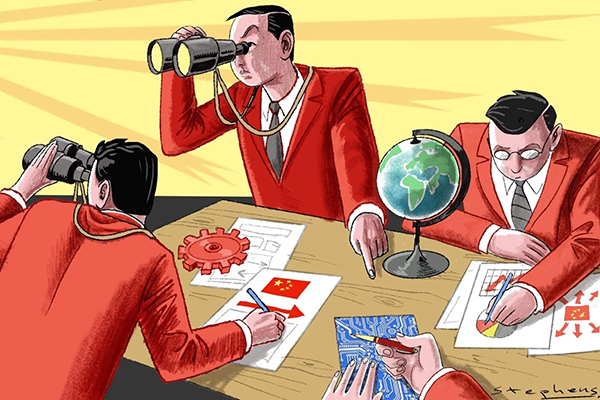【China Daily】Wang Huiyao: Stronger Sino-US ties to have wide impact
January 19 , 2021Since US President Donald Trump took office, the China-United States relationship has deteriorated to a freezing point. Under the administration of Joe Biden, the relationship will face new opportunities and challenges.
It is perhaps inevitable that ties will be characterized more by competition than cooperation. But the trajectory of China-US ties, the most critical bilateral relationship in the world, will have profound implications for global peace and prosperity.
Since the establishment of diplomatic relations, economic exchanges between China and the US have benefited both countries enormously. Bilateral trade has increased more than 250-fold in the past four decades, from $2.5 billion in 1979 to $633.5 billion in 2018. China’s high-quality and inexpensive goods have saved US families money, and US technology and capital have supported the development of various sectors in China.
However, China and the US are facing a serious trust deficit at present, with more than 100 dialogue and exchange mechanisms suspended. To restructure the China-US relationship and boost mutual understanding, we need to build more dialogue mechanisms and enhance bilateral and multilateral cooperation in jointly addressing global challenges, and harness strengths of various communities to promote bilateral exchange.
In particular, there are four areas in which both sides can work to promote mutual understanding and revitalize cooperation.
First, as the COVID-19 pandemic continues to wreak havoc across the world with record numbers of confirmed cases in many countries, China and the US could build a global anti-pandemic fund to support the World Health Organization and global anti-pandemic cooperation. China and the US should also work together to protect the world from a disastrous economic crisis, as they did in 2008, to ensure world economic stability and social development.
Second, there is excellent potential for China-US cooperation in tackling climate change. As the top two carbon emitters, the two nations can cooperate in international carbon trading mechanism reform, clean technology and energy research and development, and disaster prevention and control.
Third, in terms of international trade, since it is possible that Biden may return to the Comprehensive and Progressive Agreement for Trans-Pacific Partnership at some point in the future, China and the US may be able to negotiate on the CPTPP and World Trade Organization reform to improve global economic and trade rules.
Fourth, China, the US, the Republic of Korea and the Democratic People’s Republic of Korea could hold four-party talks to resolve problems on the Korean Peninsula. US-DPRK dialogue has stalled, and given the breakdown in the Six-Party Talks, China, the DPRK, the ROK and the US should hold four-party talks to forge a consensus on a step-by-step solution to the nuclear issue on the peninsula. In the process, the US and the DPRK can restart dialogue, and the US and China can also enhance political dialogue and mutual trust.
Deepening exchanges between China and the US will help both sides manage conflict, find a way to coexist peacefully, and seek common ground despite their differences.
At the official level, China and the US should strive to resume some high-level dialogue mechanisms. A new China-US-Europe dialogue mechanism could be established to deal with China-US-Europe relations and global governance issues.
Nongovernmental organizations such as think tanks can operate in a flexible manner and play an important role in propelling Track II Diplomacy between China and the US.Exchanges between people, especially young people, can also help energize US-China relations.
Previously, China and the US enjoyed flourishing cultural exchanges. When the pandemic ebbs, we can relax entry restrictions and welcome more people from the US to China for study, tourism, and cultural and academic exchanges, so that people of all ages and fields can better understand China through in-depth contact.
With the rise of China-US “decoupling” rhetoric and anti-globalization sentiment in the 21st century, globalization has come to a crossroads. By seizing opportunities, the US and China can forge a relationship that combines healthy competition with joint bilateral and multilateral efforts to address global challenges.
Topical News See more






